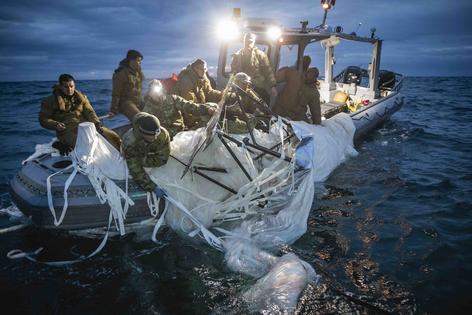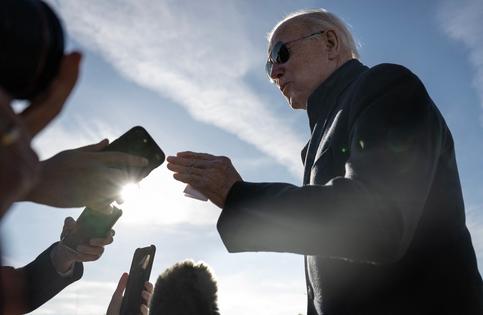Spy balloon drama elevates public attention, pressure for the US to confront China
Published in Political News
Seven days after a Chinese spy balloon began drifting across the United States, the U.S. military downed it with a single missile.
But the balloon, in a sense, continues its flight through diplomatic circles, complicating U.S.-China relations amid rising tensions.
One consequence is that the balloon may help shift how Americans view China.
We are political science scholars and U.S. foreign policy experts who recently published a book about U.S. overseas military deployments. In it, we discuss how U.S. military bases might change with a more powerful China expanding its influence.
The balloon incident is an example of mounting tensions and espionage between China and the U.S. – but it is different largely because it took place in public, occurred over U.S. territory and the subsequent diplomatic tiff received a lot of media coverage.
China’s surveillance balloon entered U.S. airspace over the Aleutian Islands in Alaska on Jan. 28, 2023, and then made its way to Montana. On Feb. 3, as Montana residents spotted and asked questions about this “weird thing” in the sky, U.S. officials publicly acknowledged the balloon. That same day, Secretary of State Anthony Blinken canceled an upcoming diplomatic trip to Beijing.
A United States Air Force F-22 Raptor shot down the balloon with a missile off the coast of South Carolina on Feb. 4.
Recently, senior U.S. defense officials acknowledged that China had targeted several countries worldwide in a similar way over recent years.
While public awareness of specific cases might be new, spying between countries is not. The U.S. has been both the target and the agent of an increasing amount of espionage.
Countries routinely spy on one another to gather information. In fact, governments often rely on secret agents to collect and report information about both their rivals and allies. In other cases, they may monitor electronic communications. Wealthier countries may also use high-altitude surveillance aircraft, like the balloon China floated over the U.S., or orbiting satellites to collect photographic or other intelligence on various targets.
...continued













Comments